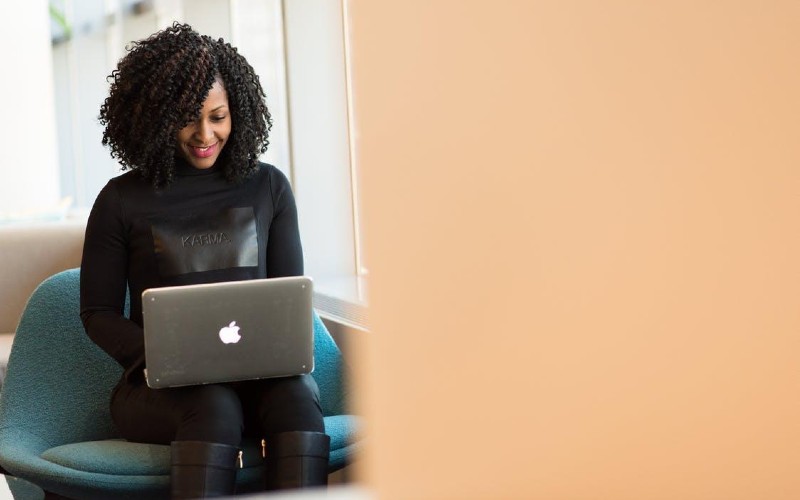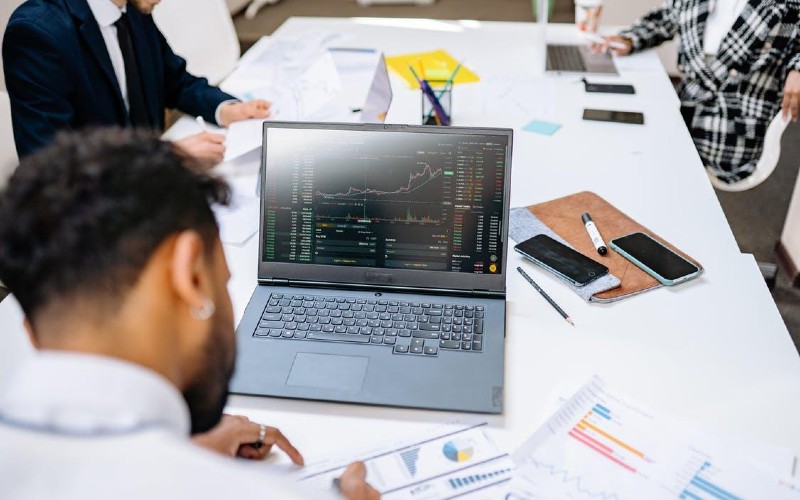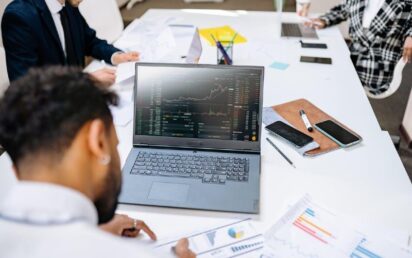Trading in the foreign exchange or forex market was estimated to be worth around $142 trillion in global GDP in 2019 – and has continued to grow. Thanks to technological advancements such as AI and machine learning, trading has become more accessible than ever. Keep reading our tips on how to get a start as a beginner.
How to get started trading forex
Nigeria is the most populous nation in the African continent, with a population of more than 216 million, and is growing fast. As the Nigerian economy grows, so does the interest in trading and investing, which includes the largest market globally, the foreign exchange or forex markets. The first step is choosing a reliable broker in Nigeria. This step takes careful consideration and a bit of homework, as, unfortunately, many scam brokers are in operation.
As with all trading and investment options, forex trading comes with its advantages, disadvantages, and risks. Unlike the stock markets, when trading forex, investors are mainly left to themselves to navigate the market, with traders often learning by trial and error. One option for beginners is to trade on leverage, which means that traders have the ability to access a greater volume of trades than they would if they were trading alone. There are various advantages to leverage, one being that it permits traders to profit from the slight increase in price movements. The idea is that if you keep your position open, the more you can invest and the potential for greater profits. However, the downside to leveraged trading is that you are also open to more significant losses with a larger amount of capital, and losing more than you have on balance, can have disastrous results.
One of the most advantageous aspects of forex trading is that you can get started with very little capital. The first rule of forex trading is only ever to invest what you can afford to lose, as it is a highly volatile market. Many brokers and platforms offer an account at a minimum deposit, or as little as $100/42550.00 nairas. The deposit amounts vary from broker to broker. Carefully consider how much you are willing to risk. Many are enticed by the flashy Instagram traders or YouTubers who claim you can get rich overnight from various forms of day trading. It is important that as a beginner not to get fooled by this type of promotional posting and to remain level-headed when making trading decisions.

Do research and create a strategy
For best results when trading forex, you need to develop the habit of doing extensive research and building an effective strategy. It takes some time to be familiar enough with the financial markets. The more experienced you are, the more capital you can invest as you learn. The foreign exchange markets and currencies are influenced by numerous events, including geopolitical events, inflation, and GDP, to name a few. It is best to evaluate just one or two currency pairs and focus on these so that you can understand those particular markets well, giving you the confidence to take a position. Other necessary steps are learning how to read charts and undertaking both fundamental and technical analysis.
Some of the best-performing African currencies are:
- Libyan Dinar: The Libyan Dinar has kept a solid position for many years as the strongest currency compared to the dollar.
- Tunisian Dinar: Tunisia has proven to be quite resistant to the US dollar. The Tunisia dinar also enjoys a static conversion.
- Ghanaian Cedi: Ghanaian currency is the leading economy within the sub-Sahara and has been offered the beacon of democracy in Africa.
- Moroccan Dirham: Morocco has long enjoyed direct trade with various European nations, given its proximity to Europe.
- Botswana Pula: The Pula’s strength is due to the country’s exemplary economy and political structure.
- Zambian Kwacha: Zambia is the leading commodity producer in Africa, particularly cooper, and its currency largely depends on global copper prices, which remain strong.
- South African Rand: Another leading commodities producer in the continent is South Africa, and as a top gold producer, relies on the commodity to boost its economy.
- Seychellois Rupee: Seychelles, a haven for tourism, has a very strict monetary policy that has strengthened its currency. Its low population of around only 100,000 people has also played a part in boosting its GDP.
- Eritrean Nakfa: Eritrea has a fixed exchange rate that protects its currency from devaluation.
- Egyptian Pound: Despite tough economic measures, Egypt introduced interest rates to attract domestic and foreign investments. This has seen its currency steady over time.

When it comes to choosing a forex trading strategy type, there are a few popular techniques, including scalping, swing trading, day trading, or trend trading. It may take trial and error to fully understand which strategy type fits your personality and experience and suits your work and lifestyle. For example, if you prefer to look into a long-term strategy, the best option is trend trading, which involves making estimations based on established market movements or trends. Or, if you prefer to see more immediate results, swing trading may be a better option for you, as this trading style means you take an overnight position.
Conclusion
As a beginner trader, remember that there is an option first to try out a demo of a trading account to get a feel for the markets and build a strategy, with the potential risks usually involved. Once you have confidence, you should always develop a well-planned strategy and choose a reliable broker.


